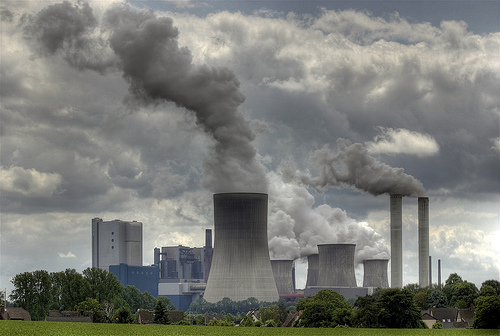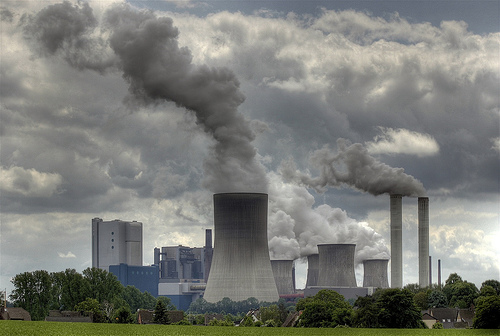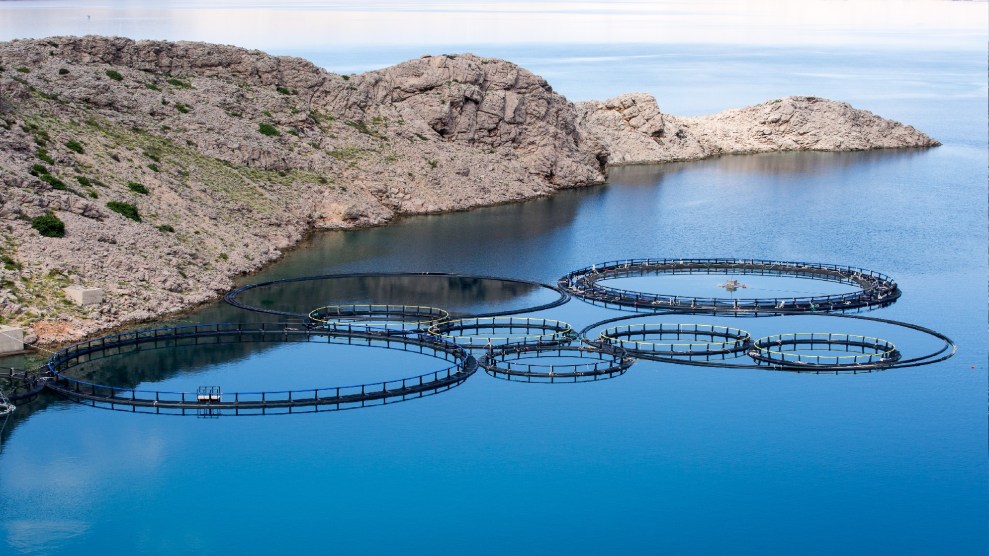
Photo by urbanfeel, via <a href="http://www.flickr.com/photos/30003006@N00/530910048/">Flickr</a>.
The climate bill may be dead, but that doesn’t mean opponents of clean air rules are resting on their laurels. A bipartisan group of senators is lobbying the Environmental Protection Agency to put the brakes on new rules that would protect the public from harmful ozone pollution, better known as smog.
In January, the EPA proposed tough new rules on ozone, tightening the controversial Bush-era standards that left the public exposed to hazardous levels of pollution. The final rule was expected out by the end of this month, though it doesn’t appear to be ready yet; it has not yet been sent to the White House Office of Management and Budget, which reviews rules before they can be finalized, according to reports.
But a group of seven senators, lead by Ohio Republican George Voinovich and Indiana Democrat Evan Bayh, is pressuring EPA administrator Lisa Jackson to hold off. The Bush administration issued their standards less than two years ago, the senators argue, and such rules are typically updated only every five years. (The senators fail to mention in their letter to the EPA, however, that the Bush-era rules were set far weaker than the EPA’s own experts recommended.)
“We believe that changing the rules at this time will have a significant negative impact on our states’ workers and families and will compound the hardship that many are now facing in these difficult economic times,” they wrote.
Democrats Mary Landrieu (La.) and Claire McCaskill (Mo.), and Republicans Richard Lugar (Ind.), Kit Bond (Mo.) and David Vitter (La.) also signed onto the letter to EPA.
Complying with the current standards has been “costly” for businesses and has “greatly restricted the ability of local communities to grow their economies,” they continue. “This is unacceptable.”
But tougher standards are a critical public health issue. The American Lung Association estimates that up to 186 million people in the United States are breathing unhealthy levels of smog due to the weak rules currently in place. “People are literally getting sick and dying from high ozone levels,” said Frank O’Donnell, president of Clean Air Watch. “But these soon-to-be-retired senators just want to play politics.” (Both Bayh and Voinovich are retiring this year.)
This isn’t a huge surprise; big emitters were already trying to use the climate bill as a vehicle to undermine other clean air standards. Major energy companies like Duke and American Electric Power have asked the EPA to drop the new standards in comments on the proposed rules.
Meanwhile, the EPA hasn’t actually issued the final rule. O’Donnell said it is “very troubling” that the agency does not appear on track to finalize the rule this month as previously indicated.













